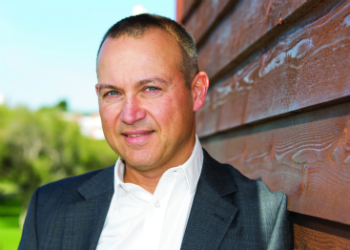Every HR practitioner’s route to certification is unique. Two notable cases reflect on how their previous experience affected their view of the role of HR in Australia.

Carmel McGregor FCPHR
“It’s by being part of a professional association that you keep up with latest developments and emerging trends.”
When it comes to talking about why HR professionals in the public sector should apply for AHRI certification, it’s hard to imagine anyone being more qualified than Carmel McGregor. She is an AHRI board member, chairs AHRI’s public sector reference group and sits on AHRI’s certification council. And she recently gained certification herself.
But that’s only part of the story. When McGregor retired from the public service four years ago, she was deputy secretary defence, people, in the Department of Defence.
Her previous position was that of deputy public service commissioner, where she was a member of the Prime Minister’s advisory group on reform of Australian government administration. In 2011 she led a review of pathways for public service women in defence (which she used as her case study on the Senior Leaders Pathway to certification).
In the 2013 Australia Day honours list, she received a public service medal for administrative reforms, including a role leading the employment pathways for APS women and a significant contribution to the reform of Australian government administration.
A career of continuous study
McGregor is currently an adjunct professor at the Institute of Governance and Policy Analysis at the University of Canberra and a private consultant.
She takes on projects on an ad hoc basis. Last year, for example, she did a review of the Victorian Leadership Development Centre.
“I suspect that was because of my role and experience in defence and as commissioner, both of which had key responsibilities for large-scale workforce management and development. But also because of my understanding of HR and leadership – which is consistent with being a member of AHRI. It’s by being part of a professional association that you keep up with latest developments and emerging trends.”
She calls herself a “stickybeak”. “I like to be involved in what’s emerging as something new and I like change projects.”
It’s consistent with McGregor’s own career path. At university she majored in psychology and sociology, having in mind that she would be a psychologist.
“On finishing my studies, I realised I was more interested in broader elements of the public service. I often say to people, ‘Don’t overplan. If you do, you won’t leave yourself open to options you never thought of.’ I didn’t start out in HR, but I ended up in areas of large organisations where I had responsibility for the people function, so I grew into it.”
But once in, McGregor was determined to be the best she could be.
“I consider it important to lead by example,” she says, “so it would be hard to explain to anyone else in HR why they should do certification if I didn’t.”
Summing up the benefits, she says: “It’s important that HR sees there are successful people who have continued to invest their expertise and knowledge in the profession and ensure we are current. Employers can then see the profession stepping up and working to standards that assure them they have people who are capable of doing the tricky task of HR in their organisations.”
It’s hard to compare HR in the public and corporate sectors, she says. “Some people say the public sector is leading, others say it’s lagging. But the public sector is certainly a more sophisticated workforce than it was 20 years ago, and the average employee is a graduate. There is an expectation that having qualifications and continuing professional development are necessary requirements to be ready for the work at hand and in the future.”

Thomas Hackl CPHR
“I would highly recommend doing certification to anyone from overseas, be they senior with a lot of experience, or a recent graduate.”
Thomas Hackl has worked in HR in large organisations in Europe and Australia for about 20 years. Since migrating to Australia from Austria in 2013, he has worked in consultant and management roles in Perth and gained an understanding of the profession in the Asia-Pacific area. Hackl currently works as an organisational effectiveness consultant at electricity company, Western Power.
Hackl says there are considerable differences between the way HR is positioned and operates in Australia and Austria.
“In Austria there is almost no short-term employment,” he says. “Contracts are permanent and many organisations establish ‘internal academies’ with universities and other education institutes [to find the best talent]. Employers may use interview set-ups with case study work and assessment centres to find the right match.”
Since the early 2000s, restructuring has been very common in Austria’s organisations, but this hasn’t necessarily led to downsizing or mass redundancies.
“It’s more about changing the shape or design of an organisation to adapt to a changing economy or to alter the identity of an organisation, which automatically leads to cultural and mindset change in management and staff.”
Higher status for HR in Austria
To support organisational transition in an “accurate” way, HR needs the relevant “power and voice” within the organisation to make it happen, he says.
“In many organisations in Austria, HR reports directly to the CEO or is combined with the finance department. This results in a more confident HR department and more leverage when it comes to HR-relevant business decisions and solutions.
“I’ve found it different in WA, where HR is a service partner and operates from a ‘corporate services’ or ‘shared services’ department. From this position it’s much harder to get heard or to influence business. This can be very challenging when implementing strategic initiatives.”
Hackl says it was quite difficult to break into the HR market in the current economy when he arrived from Austria.
“One of the first things I did was join AHRI to get in touch with industry professionals so I could get an overview and find out how my expertise in organisational development and change management could be a benefit for organisations and how I could adapt my experience to the Australian market.”
Having been a member of AHRI’s WA state council, he is now assisting as networking convenor, arranging events for AHRI members.
Nevertheless, taking the Senior Leaders Pathway to certification this year was still a “huge learning curve”, he says.
“I would highly recommend doing certification to anyone from overseas, be they senior with a lot of experience, or a recent graduate,” he says. “It gives you a perfect insight into the HR principles here and it’s a good opportunity to reflect on your own approach to HR.”
Find the best HR Certification pathway for you
Use AHRI’s online HR Certification Pathfinder to find the pathway that best suits your skill level and HR experience.
You can also call our HR Certification Team on 1300 811 880 or email apc@ahri.com.au

